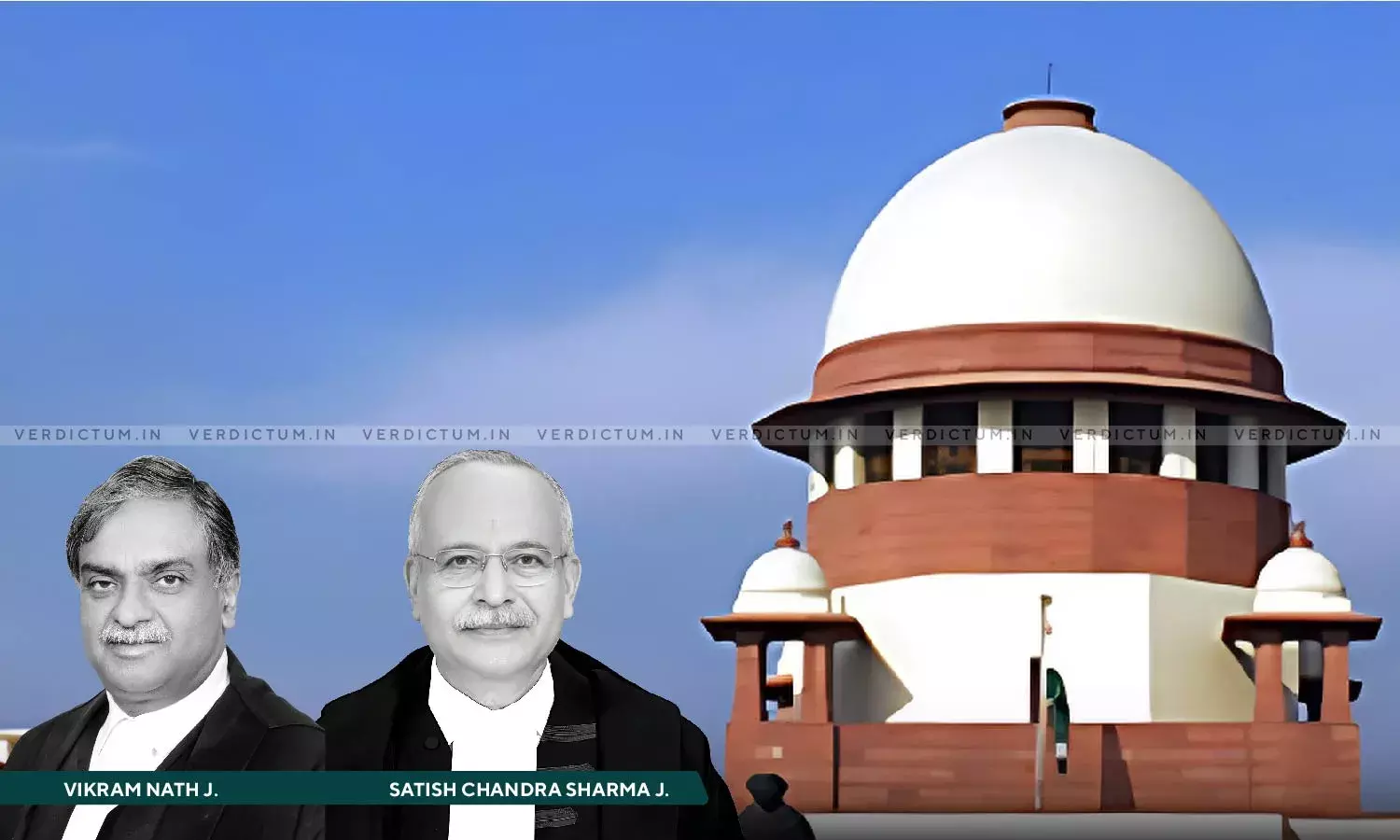No Active Role Or Positive Act To Instigate: Supreme Court Discharges Wife Accused Of Abetting Husband's Suicide
The Supreme Court discharged a wife accused of abetment of suicide of her husband, noting that she did not play an active role or perform any direct act to instigate or aid her husband in committing suicide.
The Court said that there is no proximate link between the marital dispute in the marriage of the deceased with appellant-wife and the commission of suicide.
The Court was hearing an appeal that challenged the impugned order where the High Court had dismissed the Appellant’s Revision Application. The trial Court had rejected the discharge application of the Appellant for her discharge from the offence under Section 306 of the Indian Penal Code, 1860.
The bench comprising Justice Vikram Nath and Justice Satish Chandra Sharma observed, “The appellant has not played any active role or any positive or direct act to instigate or aid the deceased in committing suicide.”
Brief Facts-
The appellant is accused of abetting the suicide of her husband who hanged himself. A complaint was filed by the man's mother alleging his physical and mental harassment, including money demands. On the day of the incident, the man was found hanging, with no suicide note. The police charged his wife under Section 306 of IPC. Her discharge application was rejected by the Trial Court and subsequently dismissed by the High Court. The case is now pending before the Sessions Court.
The Court perused Section 107 ‘Abetment of a thing’ and observed that there must be either an instigation, an engagement or intentional aid to ‘doing of a thing’. The Court applied three criteria to Section 306 and noted that the accused must have encouraged the person to commit suicide or engaged in a conspiracy with others to encourage the person to commit suicide or acted (or failed to act) intentionally to aid the person in committing suicide.
The Court mentioned the decision of the Supreme Court in S.S. Chheena v. Vijay Kumar Mahajan where the Court explained the concept of abetment along with necessary ingredients for an offence under Section 306 of IPC. The Court quoted, “…in order to convict a person under Section 306 IPC there has to be a clear mens rea to commit the offence. It also requires an active act or direct act which led the deceased to commit suicide seeing no option and that act must have been intended to push the deceased into such a position that he committed suicide.”
The Court further mentioned the supreme court decision in Ramesh Kumar v. State of Chhattisgarh, where the Court while explaining the meaning of ‘Instigation’ said, “Instigation is to goad, urge forward, provoke, incite or encourage to do “an act”. To satisfy the requirement of “instigation”, though it is not necessary that actual words must be used to that effect or what constitutes “instigation” must necessarily and specifically be suggestive of the consequence. Yet a reasonable certainty to incite the consequence must be capable of being spelt out.”
The Court said that neither the statement of the complainant nor that of the colleagues of the deceased as recorded by the Investigating Officer suggest any kind of instigation by the appellant to abet the commission of suicide.
Accordingly, the Court set aside the impugned order and allowed the appeal.
Cause Title: Rohini Sudarshan Gangurde v. The State of Maharashtra (Neutral Citation: 2024 INSC 519)












